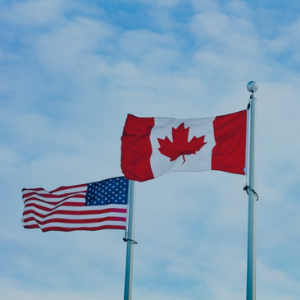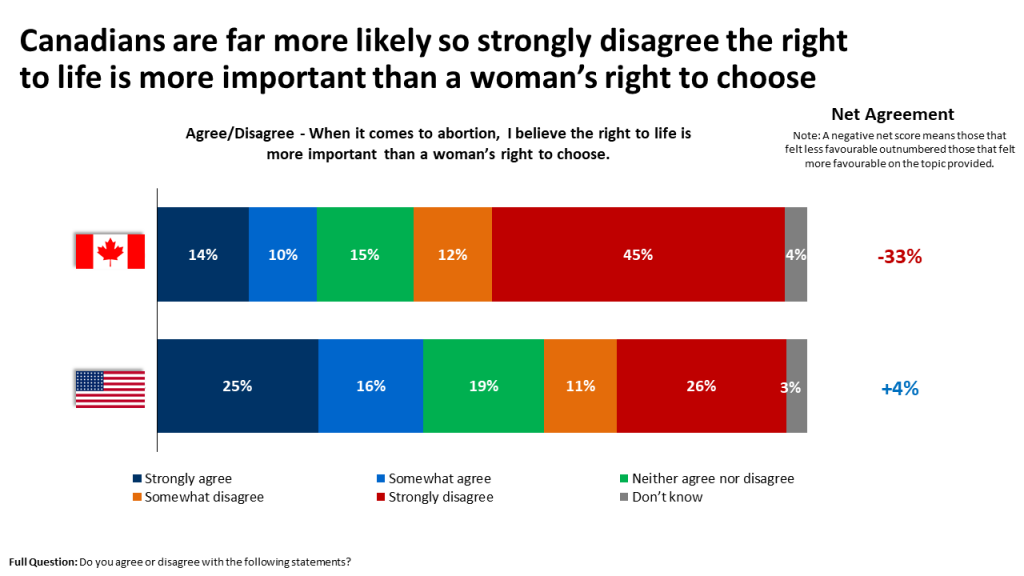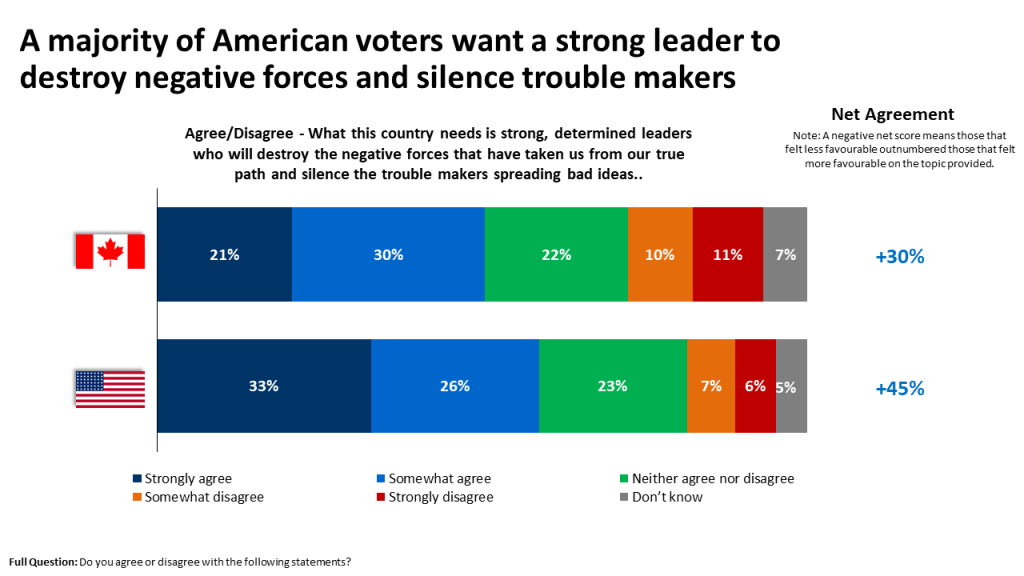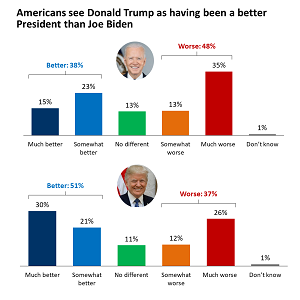
In an online survey of 2,771 eligible Canadian voters and 2,435 registered US voters, Innovative Research Group (INNOVATIVE) found that Canadians have a great deal more in common with our Southern neighbours than we might expect.
Looking across 21 value dimensions combining questions relating to economic, cultural, populist/alienation, openness, and post-materialist values, Canadians and Americans are generally more similar than different. But there are two big, and seven more moderate value gaps, that help exist explain a lot about the differences in our politics.
The largest differences can be found in cultural values. Social conservatism is a key difference between the two countries. In Canada, there are almost 3 social liberals for every social conservative. In the US, it is a 1 to 1 split.

To find a way to get at guns that would have some appeal on both sides of the border, we asked if hunting is a thing of the past or a part of our ongoing lives. A majority of Americans (50%) see it as an ongoing part of life while 48% of Canadians see it as something they are leaving behind.
Among the moderate difference, a key dimension is cultural alienation. Americans are more likely to say the world is changing too fast, that politics is too complicated for someone like them to understand, and that they need a strong leader who could fix it. Most Americans (59%) agree that the country needs “strong, determined leaders who will destroy the negative forces and silence the troublemakers” with 1-in-3 (33%) Americans who “strongly agree”. Only 14% of Americans disagree with that statement.
There is far less consensus in Canada on the need for a strong leader who will silence the opposition, with 50% agreement and 21% who disagree. Intensity of agreement is also much weaker.
In 2016, Donald Trump successfully played the role of the strongman for 63 million voters. He then spent the better part of the last four years trying to destroy and silence the troublemakers that opposed him.

Other moderate differences include:
- Americans are more politically alienated: they are more likely to feel government is beholden to special interests and wastes taxpayers’ money (68% Canada, 76% US).
- Despite that, Americans are a bit more likely to feel they can make a difference and that participation in politics is important (60% Canada, 65% US).
- Americans are more likely to feel outcomes in life reflect personal responsibility, not the system, and prefer equality of opportunity over the redistribution of wealth (61% Canada, 67% US).
- Americans are more likely than Canadians to support free market economics(58% Canada, 63% US).
- Canadians believe more in greater government intervention and regulation in the economy than Americans (48% Canada, 43% US).
- And finally, Canadians are more likely to describe themselves as feminist (53% Canada, 47% US).
For more information and detailed insights, read the full report here.
Methodology: Results for this study come from two online surveys of American registered voters and Canadian eligible voters. Both surveys were in field from September 29, 2020 to October 6, 2020. The American survey has a total weighted sample size of 1,000; the sample was weighted by age, gender, region, education, race, and urban/rural. The Canadian survey has a total weighted sample size of 1,500; the sample was weighted by age, gender, and region. See the full report for detailed methodology.

































